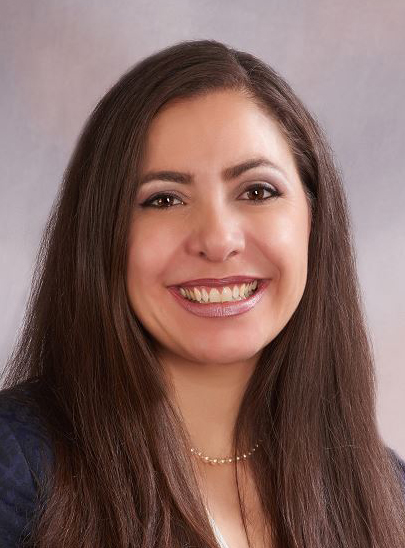WEBINAR: SDOH Impact on Equity and Diversity in Clinical Trials
The FDA reports that only five percent of clinical trial participants are Black, fewer than two percent are Asian, and fewer than one percent are Latino. This grossly uneven representation in clinical research means that current treatments may not be equally safe and effective for all populations. These findings suggest a need for a larger focus on the social determinants of health (SDOH) when designing clinical trials. Especially in light of recent concerns over the lack of racial diversity in COVID-19 research, it is urgent that we address this health equity issue.
On Jan 12, eHI will convene leading pharma manufacturers and leaders in public health to discuss current steps being taken to enhance diversity in clinical trials and to address the use of SDOH in the design of clinical trials.
Areas of discussion will include:
• Research from studies that reveals how SDOH may have an impact on clinical trials
• The implications of clinical trials without diversity, equity, or inclusion
• Current pharma-led initiatives around health equity and diversity in clinical trials
• Methods for ensuring SDOH is considered during vaccine development for infectious diseases, including COVID-19.
Speakers:

Jen Covich Bordenick
CEO
eHealth Initiative and Foundation
For over 20 years, Jennifer has focused on quality and innovative technology solutions to transform healthcare. As CEO, she provides leadership for research, education and advocacy components of eHealth Initiative and Foundation (eHI). Convening senior executives from every group in healthcare to discuss, identify, and share best practices that transform the delivery of healthcare. Focus areas: improving health and wellness through innovative solutions; interoperability; privacy concerns; artificial intelligence; payment models to support innovative care; and tech tools for chronic care. She led development of dozens of national surveys and published groundbreaking reports. As part of her work with the Foundation, she led grants with California Health Care Foundation, Commonwealth Fund, Aetna Foundation and Bristol Meyers Squibb Foundation. Jennifer is co-chair of the Federal HIT Policy Committee’s Strategy and Innovation Workgroup; member of the HL7 Board of Directors; and a member of the Diabetes Collaborative Stakeholder Panel. Jennifer is a faculty member for the MHA and MHIA graduate programs at George Washington University. Prior to joining eHI, Jennifer headed up the strategic marketing at OpenNetworks, Inc., focusing on security solutions for the healthcare industry. She led healthcare industry relations at MicroStrategy, Inc., focusing on data-mining solutions for the pharmaceutical and healthcare industry. She spent four years at the National Committee for Quality Assurance as Director of Policy and Product Development, helping develop national quality standards for healthcare organizations. Jennifer began her career at the George Washington University Hospital, Medical Center and Health Plan working on quality management initiatives, clinical pathways and healthcare administration. Jennifer earned a master's in Human Resource Development, completed coursework in health administration doctoral program at GWU, and resides in Maryland with her husband and two children.

Luther T Clark, MD, FACC, FACP
Deputy Chief Patient Officer & Global Director, Scientific, Medical and Patient Perspective, Office of the Chief Patient Officer
Merck
Dr Clark leads Merck’s Patient Insights Team, is co-leader of the team that champions Health Care Equities (including promotion of health literacy and research diversity) and chairs the Patient Engagement, Health Literacy & Clinical Trials Diversity Investigator Initiated Studies Research Committee.
Prior to joining Merck, Dr Clark was Chief of the Division of Cardiovascular Medicine at the State University of New York Downstate Medical Center (SUNY Downstate) and founding Director of the National Institutes of Health (NIH) funded Brooklyn Health Disparities Research Center.
Dr Clark earned his Bachelor of Arts degree from Harvard College and his Medical degree from Harvard Medical School. He is a Fellow of the American College of Cardiology (FACC) and the American College of Physicians (FACP), and a past member of the Board of Directors of the Founders Affiliate of the American Heart Association. He is a nationally and internationally recognized leader in cardiovascular education, clinical investigation, cardiovascular disease prevention, and health equity. He has authored more than 100 publications and edited and was principal contributor to the textbook Cardiovascular Disease and Diabetes (McGraw-Hill).
Dr Clark has received numerous awards and honors, including the Harvard University Alumni Lifetime Achievement Award for Excellence in Medicine. He is the current President of the Health Science Center at Brooklyn Foundation (HSCB Foundation), SUNY Downstate Medical Center.

Dana Dornsife
Founder and CEO
Lazarex Cancer Foundation
Dana Dornsife founded Lazarex Cancer Foundation, a nationwide non-profit organization, in 2006 in response to a family experience with cancer. The unique mission of Lazarex is to improve the outcome of cancer care, giving hope, dignity and life to advanced stage cancer patients and the medically underserved by providing assistance with costs for FDA clinical trial participation, identification of clinical trial options, community outreach and engagement.
In 2016, Dana expanded the mission at Lazarex to bring sustainable and transformational change to the bench to bedside process of clinical trial enrollment, retention, minority participation and equitable access with IMPACT (IMproving Patient Access to Cancer Clinical Trials). Most recently, Lazarex created collaboration around a public health initiative in Philadelphia, PA – Community IMPACT. This bold initiative is aimed at creating a replicable model to improve cancer health outcomes and associated co-morbidities for the residents of medically underserved and socioeconomically challenged minority neighborhoods throughout major metropolitan cities and beyond.
Dana is a graduate of Drexel University in Philadelphia. She is a board member of the USC Brain and Creativity Institute at University of Southern California, serves on the UCSF Cancer Leadership Council, and the MGH Presidents Council. She is on the governing board of the Yosemite Conservancy, in addition to being a council member. Dana and her husband, Dave Dornsife, a USC Trustee, support a WASH initiative – Water, Sanitation and Hygiene, in 24 African countries through World Vision, an international humanitarian agency.

Lorena Kuri
Diversity Strategy | Global Clinical Trial Planning & Alliances
Bristol Myers-Scribb
Born and raised in Mexico, Lorena is a people oriented, active and sensitive change agent, currently leading BMS’s R&D efforts on Diversity in Clinical Trials. Her experience and transferable skills helped her change careers after more than 14 years in Commercial roles, finding a match in Clinical Operations, expanding the opportunity to help medically underserved populations. Lorena’s business acumen and customer focus have been key to demonstrate results, but more importantly to engage with key stakeholders. She holds a BA in International Business and Masters in Strategic Management and Human Capital. She believes in the value of connecting others and is proud of cultivating networks, helping whenever is needed.
She is an inclusion advocate and stands for what is right.
As a Latina, Immigrant and a Working Mom, Lorena found a way to connect her purpose and power, and is trying to make it right leveraging her intersectionality and the roles she holds at organizations like WOCIP (Women of Color in Pharma), the RedShoeMovement and her hometown Diversity Committee in New Providence NJ, where she lives with her husband and two kids.

Lili Gil Valletta
Co-Founder and CEO
CIEN+ and CulturIntel
Lili is an award-winning entrepreneur, recognized cultural intelligence® expert, A.I. tech innovator and World Economic Forum Young Global Leader. After a successful corporate career, including a 10-year tenure at Johnson & Johnson, Lili co-founded CIEN+ and CulturIntel. Her firm is globally recognized as a leader in AI-powered market research, business consulting and marketing strategies to accelerate and drive innovation and profits; with an expertise in the health and wellness sector. Culturintel’s ability to mine open-source digital discussions in real-time to map patient journeys and health insights by segments-globally, have been published by Harvard Medical School, featured at the 2019 World Psychiatry Summit and presented in Davos 2020, among others.
Some of her clients include Merck, Abbott, Boehringer Ingelheim, Johnson & Johnson, Novartis, CVS/Aetna, WW (Weightwatchers) among other Fortune 500’s. She is a regular TV commentator seen on Fox News, Fox Business and CNN en Español. Lili is also one of only 2.6% of Latinos serving on a Fortune 500+ public board, as an independent director at Zumiez (NASDAQ: ZUMZ). Other boards she serves on include AUA Private Equity Partners, Harvard Women's Leadership Board, National Board of Directors of the YMCA USA and the American Heart Association’s Communications & Marketing Coordinating Committee. In 2020, she was selected to join the advisory board for Social Determinants of Health Taskforce at the World Economic Forum. Some of her recent awards include 2019 Top 10 Innovation Catalyst by Medical Media & Marketing (MM&M), 2019 Silicon Valley Visionary, 2018 Top 50 Most Influential in Healthcare by MM&M, 2018 U.S. Hispanic Businessperson of the Year by the U.S. Hispanic Chamber of Commerce, Top 100 Most Powerful Women of NY, among others. She is an active voice elevating promoting equity and business inclusion, collaborating across various initiatives at the United
Nations, The World Economic Forum and The White House. Lili holds a degree in Business Administration from Southwestern Adventist University, an M.B.A. from the University of Colorado and an executive degree from the Harvard Kennedy School in Global Leadership and Public Policy. She lives in New York with her husband and her two sons.
Support for this webinar brought to you by:

WEBINAR: How Providers are Scaling Virtual Care: Best Practices and Lessons Learned from the Leaders
The pandemic reshaped healthcare’s utilization of virtual care. Almost overnight, providers quickly mobilized telehealth programs, reshaped audio-only check-ins, and revamped patient engagement solutions. As healthcare leaders refine and grow these programs over the coming months, our experts detail the strategies and practices to help organizations scale from pilots to enterprise-wide, comprehensive virtual care deployments.
WEBINAR: New Strategies for Patient Engagement: Lessons Learned During the Pandemic
Are your patients and members so concerned about contracting COVID-19 that they are afraid to seek preventative care? Between deferred care, COVID-19 vaccine engagement, and the need to illuminate and address socioeconomic challenges and health equity, patient engagement presents new challenges as move into 2021. Do your current strategies measure up?
WEBINAR: SDOH Impact on Equity and Diversity in Clinical Trials
The FDA reports that only five percent of clinical trial participants are Black, fewer than two percent are Asian, and fewer than one percent are Latino. This grossly uneven representation in clinical research means that current treatments may not be equally safe and effective for all populations. These findings suggest a need for a larger focus on the social determinants of health (SDOH) when designing clinical trials. Especially in light of recent concerns over the lack of racial diversity in COVID-19 research, it is urgent that we address this health equity issue.
Assessing eHI’s Guiding Principles for Ethical Use of SDOH Data During COVID-19
eHealth Initiative & Foundation (eHI) released a report in partnership with the Health Care business of LexisNexis Risk Solutions entitled Assessing eHI’s Guiding Principles for Ethical Use of SDOH Data During COVID-19: Examples from the Field. The report describes the ways in which stakeholders collect and utilize social determinants of health (SDOH) data to create targeted interventions for vulnerable populations.
In 2019, eHI released the Guiding Principles for Ethical Use of Social Determinants of Health Data, which proposed recommendations for the ethical use of SDOH data by healthcare organizations. Today’s report delivers findings from a panel of experts convened from government, health care providers, and community-based organizations, who each presented examples of how the five guiding principles were applied during the COVID-19 pandemic.
The five guiding principles involve how to ethically:
- Employ SDOH in care coordination
- Recognize risk through analytics
- Map resources and identify gaps
- Assess impact
- Customize interventions and allow individuals to determine the best fit
The report emphasizes the importance of applying the Guiding Principles in ways that are transparent, respectful, and effective. “So many factors can impact a person’s health, factors that go beyond just a clinical diagnosis. We have an obligation to our communities to effectively and ethically apply SDOH analytics to identify those who need additional care services that can dramatically improve their health,” said Josh Schoeller, CEO at the Health Care business of LexisNexis Risk Solutions.
“As we continue to face this unprecedented health challenge, the ethical use of SDOH data improves healthcare and community organizations’ ability to provide the right interventions," said Jen Covich Bordenick, CEO of eHI. “We were pleased to join with LexisNexis Risk Solutions to highlight how organizations have stepped up to meet the needs of communities who are most impacted by the ongoing COVID-19 pandemic. We hope this report provides insights on how to provide whole-person healthcare.
eHealth Initiative Releases Report Highlighting Ethical Uses of SDOH Data During COVID-19
eHealth Initiative Releases Report Highlighting Ethical Uses of SDOH Data During COVID-19
FOR IMMEDIATE RELEASE
Webinar: Patient Matching to Combat COVID-19
The COVID-19 pandemic highlighted underlying challenges in data matching and patient identity and, in many cases, slowed public health efforts to respond to and contain the spread of the virus.
eHI invited participation in a survey to assess industry views and opinions on the importance of data matching and patient identity in the response to COVID-19. This webinar analyzes our findings.
WEBINAR: Improving Access to Healthcare Data via the FHIR Payer Endpoints Directory
Join eHI and CAQH on November 10th for an educational webinar on CAQH’s FHIR Payer Endpoints Directory, a centralized directory that securely publishes validated FHIR endpoints, simplifying how healthcare organizations and third-party apps find and share endpoint information. The informative presentation will dive into how the FHIR Payer Endpoints Directory intersects with new regulatory requirements in the CMS Interoperability and Patient Access Final Rule.
eHealth Initiative Releases Report on Health Information Challenges in American Indian & Alaskan Native Communities Combating COVID-19
Tuesday, October 13
For Immediate Release
Contact: Wanneh Dixon at Wanneh@ehidc.org
eHealth Initiative Releases Report on Health Information Challenges in American Indian & Alaskan Native Communities Combating COVID-19
Webinar at 2 PM Today
Report: Supporting American Indian & Alaskan Native Communities Combating COVID-19
Racial inequities and health and socioeconomic disparities between American Indian/Alaskan Native (AI/AN) people and the U.S. non-Hispanic white population have harmed tribal communities for many generations. The seriousness and depth of longstanding public health problems have been brought into sharp focus with the onset of the COVID-19 pandemic. Increases in funding and improvements in data collection, information sharing, infrastructure, and culturally responsive healthcare services are urgently needed to eliminate these inequities across rural and urban tribal communities in the U.S.
In August 2020, eHealth Initiative Foundation (eHI) and Philips hosted a virtual Roundtable meeting, titled Supporting Native American Communities Combating the COVID-19 Pandemic.
The purpose of the meeting was to explore the impact of the novel coronavirus (COVID-19) on rural and urban American Indian and Alaskan Native (AI/AN) populations throughout the United States; enumerate the social determinants of health (SDOH) and other factors driving disparities in COVID-19 infection rates, treatment, prevention, testing, contact tracing and secondary behavioral health issues across the country’s diverse tribal communities; and gather insights regarding the resources needed to enable AI/AN communities to more effectively reduce infection rates and gain access to services.
The meeting was organized to provide a starting point for the development of programs and materials – beginning with this issue brief – to raise awareness among healthcare professionals of the daunting challenges facing tribal populations related to COVID-19, and to help the healthcare sector work more closely with tribal leaders and citizens, advocacy groups, public health experts, and government agencies in responding to the needs of AI/AN communities.
Roundtable participants included experts and leaders in AI/AN health, tribal culture and economics from the government, non-profit, and academic sectors (see Appendix for a full participant list). eHI plans to convene future Roundtables and to collaborate further with AI/AN organizations to develop additional resources to expand the learning and support initiated by this meeting; explore more fully some of the most pressing needs and issues identified; and generate a framework that can be used for COVID-19-related advocacy and information-sharing in support of AI/AN communities.
